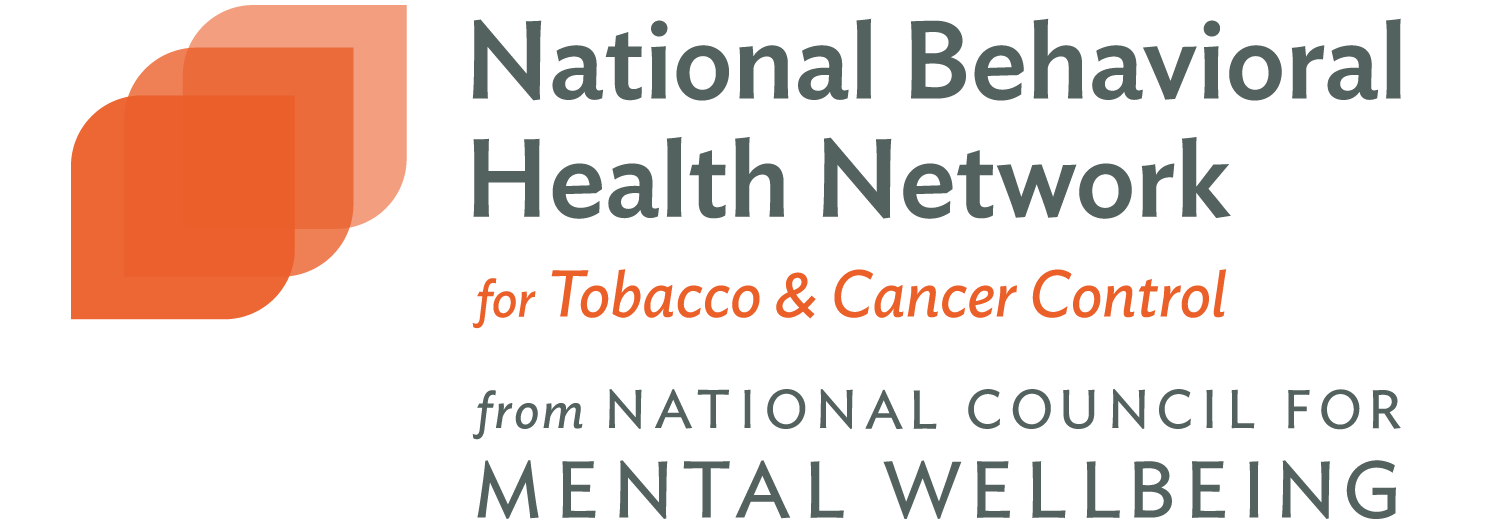Dear Friends and Colleagues,
Smoking is up close and personal for me and I have been humbled by how difficult it is to stop. I come from a family of smokers and married into a family of smokers. Both my grandfather and father died of lung cancer. Among my earliest childhood memories, is being woken each morning by my father’s coughing and the ever-present pack of Camels next to my grandfather’s favorite chair. It was easy to start smoking in high school; in fact, didn’t all the cool kids smoke? And yes, I believed it increased my concentration and made me a sharper college girl. And I admit to raising my sons in a house filled with smoke, my husband and I both smoking away despite the clear evidence about the dangers. I smoked steadily and almost non-stop for more than 25 years and quit over and over again for another 10. And my husband still struggles; hypnosis, patches, medications and nagging are all part of the arsenal in fighting the tobacco
addiction. People with mental illness and substance use disorders are no different than my family; we share this particular battle. And we need the help and understanding of peers and healthcare professionals.
As healthcare professionals, we are called to foster healthy, supportive environments for the people we serve, and to provide every opportunity to live healthy, productive lives. But how can we fully realize this responsibility when traditional treatment approaches ignore risky behaviors? How can we expect people to quit smoking when cessation services can be so difficult to access? These are questions we must ask ourselves if we are fully committed to improving health outcomes.
It is no secret that tobacco use poses a serious threat to the overall health of Americans. Tobacco-related disease is the leading preventable cause of death in the US, causing more than 430,000 deaths annually. It is estimated that 200,000 of those deaths occur in people with mental illnesses and addictions. That’s right, close to half of all annual deaths due to tobacco-related disease occur in populations with behavioral health disorders. This is not surprising given that adults experiencing a psychiatric illness consume over 34% of all cigarettes smoked, and smoke 2-4 times the rate of the general population while receiving far less cessation support. The traditional healthcare culture does little to improve these statistics. Tobacco use is rarely documented in health records, smoking prevalence rates are relatively high among
behavioral health staff, and only 1.5% of persons treated by a psychiatrist receive resources related to cessation.
The silver lining is that promising practices and evidence-based solutions to this healthcare crisis exist, and every person with a behavioral health condition should have an opportunity to quit smoking and engage in smoke-free environments. For the past three years we have seen new practices for tobacco cessation being successfully implemented in SAMHSA’s primary and behavioral health care integration (PBHCI) grantees and among our member organizations. We know these strategies work. The National Council is dedicated to disseminating these efforts, and through our partnership with the Behavioral Health & Wellness Program at the University of Colorado, we are prepared to take action.
With the support of Pfizer and the Smoking Cessation Leadership Center, the National Council will be offering various educational opportunities over the next two years for healthcare agencies, providers, and consumers of services. Here are just a few:
- Tobacco Cessation Sessions at National Council Conference: At this year’s Mental Health and Addictions Conference, April 8th-10th in Las Vegas, Chad Morris, PhD, and Cindy Morris, PhD, from the University of Colorado will offer two free sessions open to those who will be attending the conference, and those who would just like to attend the sessions: The Key to Reducing Unnecessary Death and Disability will provide evidence-based training in how to screen, assess, and treat tobacco dependence and share 10 steps toward success in bringing behavioral health agencies, hospitals, and residential treatment settings tobacco free.
- Meeting Workforce Wellness Demands- Introduction to the Peer-to-Peer Tobacco Recovery Program will focus on peer-driven services to reduce the deathand disability related to tobacco use.
- Regional Trainings on Evidence-Based Strategies: Healthcare providers will have the opportunity to attend one of four regional trainings that will correct many of the misconceptions or “clinical lore” about tobacco, share knowledge about the most recent evidence base regarding prevention and cessation assessment, treatment, policy, and community referrals, and build rapid improvement plans tailored to agency readiness for change and need. The locations of these free trainings will be announced later in the year.
- A Webinar Series on Tobacco: This webinar series is intended for behavioral health and primary care clinicians, as well as consumers, and will focus on effective techniques and strategies to support people in quitting the use of tobacco.
- Individual Technical Assistance: Behavioral health agencies will have the opportunity to participate in one-on-one consultation with experts in the field of tobacco control and prevention. Consultants will provide technical assistance on areas such as workflow analysis, implementation of rapid improvement projects, and tobacco-free policy implementation.
Many of the National Council member organizations have been actively engaged in tobacco cessation initiatives within their communities and have been leading this effort in the behavioral health field. But we must all work together to realize this endeavor. Whether you are a provider, consumer, or family member, I encourage you to join the National Council in making tobacco cessation not only a priority, but a necessity within your community.
I welcome your thoughts on this important matter. As always, you can reach me at LindaR@thenationalcouncil.org or 202.684.7457. In addition, Mohini Venkatesh is our staff lead on this initiative. Please do not hesitate to contact her at MohiniV@thenationalcouncil.org or 202.684.7457 ext. 230.
Together we can break the mold and make cessation programs and smoke-free policies an expectation for the entire behavioral health community.
Best Regards,
Linda Rosenberg, MSW
President and CEO
National Council for Behavioral Health

